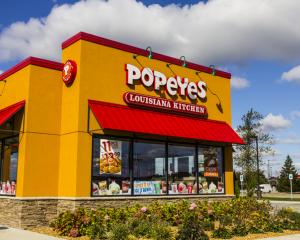
Will Miao believes it may not be far away.
He is the head of payment innovations at Worldline, formerly Paymark, the company set up by New Zealand’s four major banks 30 years ago to introduce eftpos across New Zealand.
Next week, he will be speaking to the Institute of Directors’ Otago Southland branch about what the future of payment systems might look like.
"We are in for some big changes," Mr Miao said.
Worldline ran a facial recognition pilot trial at a well-known Auckland restaurant at the end of 2019 which allowed them to gain considerable insight into how it could function in practice.
With Covid-19 restrictions, such as mask use, facial recognition was probably going to be put on hold for the immediate future.
While the pilot trial might have been a bit ahead of its time, people were "pretty receptive" of the concept.
"They struggled to go back to the old way of paying when the pilot finished," he said.
Mr Miao admitted that using a biometric system would put some people off, but he said that most people now used facial recognition for things such as unlocking their smartphones.
"But sometimes there is that mental barrier for people to say, ‘Is that risky, what about my privacy?’."
Mr Miao believed when contactless payment was introduced 10 years ago people were initially reserved about that, but it was almost the mainstream way of paying now.
It was predicted that the use of eftpos would decline and within a few years it might be gone all together.
It could be replaced by a digital New Zealand dollar, which is being developed by the Reserve Bank of New Zealand.
The concept, which was sent out for public consultation by the central bank last year, would be a form of cryptocurrency and likely transacted over a form blockchain — a digital wallet.
The difference would be the Reserve Bank would issue them as New Zealand dollars, rather than bitcoin.
"We think it is a matter of time before that happens."
There was a lot of change on the horizon for the future of payment, which made it a very interesting time, Mr Miao said.
"For me, I get pretty excited talking about this."
Asked whether he thought New Zealand would turn into a cashless society, Mr Miao said there would always be a role for cash to play.
New Zealand was "very much" already a cashless society and that trend would only continue as more innovative ways to pay for items were brought to the market.
"People that are using cash now will continue to do so, so I think there always be for a role for it."
Comments
NO THANKS !!!
If I need to explain why, you've learnt nothing over recent years.
Digital wallet, digital dollar, facial recognition = total state control
These ideas are already being implemented in China and the score is kept on their Social Credit Card
Couldn't happen here ??? Yeah !!! Right !!!!
https://www.businessinsider.com/china-social-credit-system-punishments-a...
Until there are good strict regulations about how this is stored, used etc, I personally will not be using it, nor will I be advising others to. Without regulation and regular independent audits, this is a minefield of trouble. Companies will be able to hide behind long obscure Terms and Conditions that the average person will not read.
For now, I personally think that handing over bio-metric data to private companies should be avoided where possible. We don't know fully how that data is being used or if it potentially could be sold. If not directly selling the data commodity it could be transferred as part of a business takeover or purchase to a company you don't have trust in.












